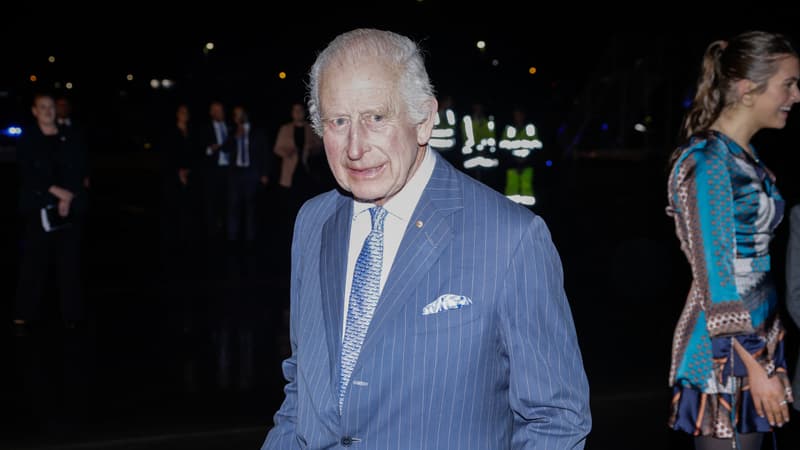Charles III sought to delay the Commonwealth summit on Friday amid growing demands for reparations for Britain’s colonial past amid a heated debate over the legacy of slavery and empire.
The monarch attended the summit of leaders of the 56 member states of the Commonwealth, in the Samoa Islands, in the South Pacific, with the aim of bringing this organization inherited from the British Empire to modernity.
But discussions about tackling climate change have been overshadowed by history, at the first Commonwealth summit attended by Charles III as sovereign.
“Repairing historical errors”
Many African, Caribbean and Pacific nations want Britain and other European powers to pay financial compensation for slavery or at least make political amends.
It is time for the Commonwealth to seek “justice” for the brutal period of slavery suffered by many countries in the group, Bahamas Prime Minister Philip Davis told AFP on Friday.
“Now is the time to engage in real dialogue about how to right these historic wrongs,” he added.
“Restorative justice”
The Commonwealth was originally made up of former British colonies, but later expanded with countries such as Togo and Gabon, both former French colonies. The countries hope the summit will commit to opening a debate on the issue, a debate the UK has so far tried to avoid.
“Restorative justice is not an easy conversation, but it is important,” Philip Davis told AFP.
“Our history is deeply intertwined, which comes with a responsibility to confront the past honestly.”
“The horrors of slavery have left deep generational wounds in our communities, and the fight for justice and restorative justice is far from over,” he said.
“None of us can change the past.”
According to historians, over four centuries, an estimated 10 to 15 million slaves were forcibly brought to the Americas from Africa, although the exact human cost is unknown.
An apology has been made to the British royal family, which profited from the slave trade for centuries. But the monarch refrained from doing so on Friday, calling on summit participants to “reject the language of division.”
“Listening to people across the Commonwealth, I understand that the most painful aspects of our past continue to resonate,” he said.
“None of us can change the past, but we can commit, with all our hearts, to learning from it and finding creative ways to correct the inequalities that persist.”
“Thinking about the future”
British Prime Minister Keir Starmer has so far publicly rejected demands for reparations and his advisers have ruled out an apology at the summit.
“The slave trade and slavery practices were abhorrent and it is very important that we take that into account as a starting point,” he told the BBC at the summit.
“The question then is: where do we go from here? My position, so to speak, is that we must look forward, that we must consider the challenges of today.”
After tough negotiations
A draft summit communiqué, which calls for a debate on colonialism, is the subject of tough negotiations. Developed countries tried to soften the terms of the final communique, a diplomatic source told AFP on condition of anonymity.
“Demands for reparations are not limited to financial compensation: they are about recognizing the lasting impact of centuries of exploitation and ensuring that the legacy of slavery is addressed with honesty and integrity,” Philip Davis insisted.
Lesotho’s Joshua Setipa, one of three candidates vying for the post of Commonwealth secretary-general, said reparations could include alternative forms of payment, such as funding the fight against climate change.
“Addressing certain injustices of the past”
“We can find a solution that allows us to address certain injustices of the past and place them in the context that surrounds us today,” he told AFP before the summit.
Kingsley Abbott, director of the Institute of Commonwealth Studies at the University of London, said including a mention of restorative justice would be a “significant step forward” for the Commonwealth.
This “reveals that the door is opening to meaningful dialogue,” he told AFP.
The British sovereign ends an 11-day tour of Australia and Samoa, two independent states of the Commonwealth, on Saturday. This is his first major trip abroad since announcing his cancer earlier this year.
Source: BFM TV


